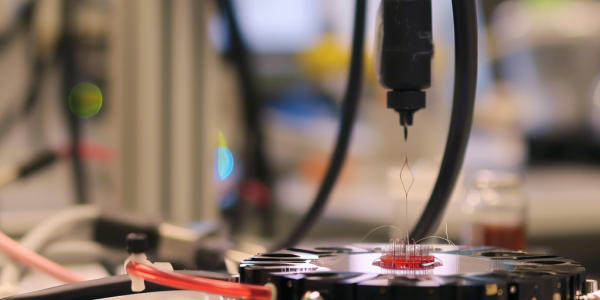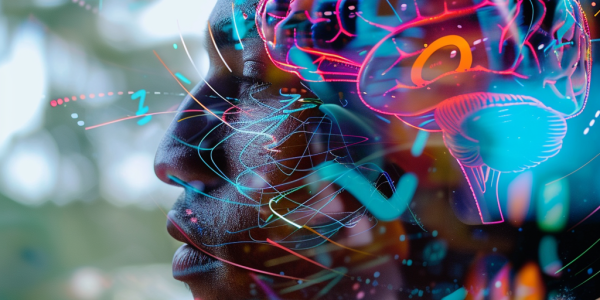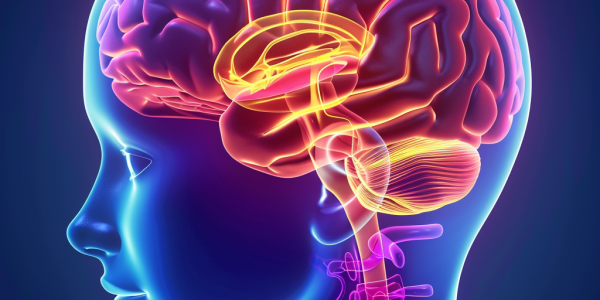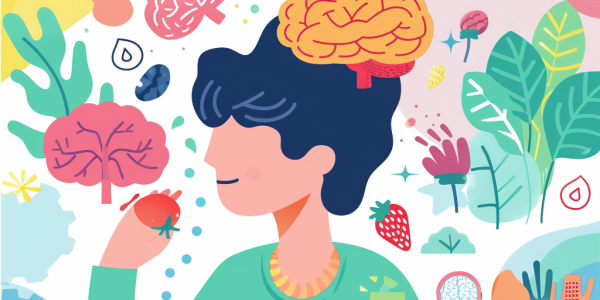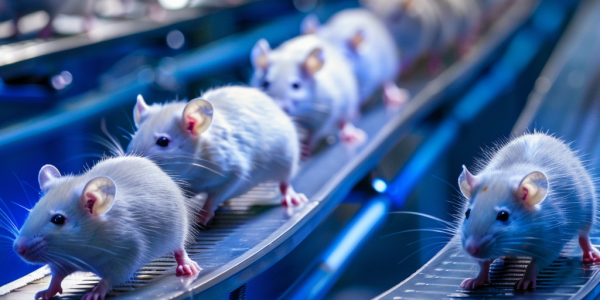MIT Engineers Develop Implantable Ultrasound Device for Neurological Disorders
MIT engineers have developed the ImPULS device, an implantable ultrasound technology that could revolutionize the treatment of neurological disorders like Parkinson’s disease. This groundbreaking device offers a minimally invasive alternative to traditional deep brain stimulation, potentially reducing tissue damage and increasing treatment efficacy. The device, as thin as a human hair, uses ultrasound instead of electricity for deep brain stimulation, showing promising results in triggering dopamine release. This innovation not only has therapeutic applications but also holds promise for advancing neuroscience research.
Study Reveals How Brain Recognizes and Predicts Musical Sequences
Discover how researchers are uncovering the complex neural processes involved in music recognition and how it could potentially aid in detecting cognitive decline and dementia. Learn how the brain responds to music and the implications for studying cognitive functions and conditions like dementia.
Study Reveals Impact of Estrogen Receptors on Cognitive Function in Women
Discover the impact of estrogen receptors on cognitive function and aging in the female brain. Recent research highlights the role of 17β-estradiol and ER density in brain function, with implications for memory and mood symptoms in menopausal women. Learn more about the potential for targeted interventions to support cognitive health and emotional well-being during and after menopause.
Obesity and Smoking Identified as Key Triggers for Alzheimer’s Disease
Health experts warn that obesity and smoking are major triggers for Alzheimer’s Disease, with a recent study projecting a tripling of global dementia cases by 2050. Dr. Vikas Mittal explains how smoking damages blood vessels, reducing blood flow to the brain, while Dr. Anurag Saxena highlights the link between obesity, diabetes, and cardiac disease as risk factors for Alzheimer’s. Maintaining a balanced lifestyle and engaging in brain-stimulating activities are recommended to prevent vascular dementia.
Link Between Gut Health and Brain Function in Resilient Individuals Revealed
A recent study from UCLA Health Sciences reveals the connection between gut health and brain function in resilient individuals. The research highlights how high resiliency is linked to enhanced cognition, emotion regulation, and a healthy gut microbiome. By identifying these traits, targeted interventions can be developed to mitigate stress and its effects, offering valuable insights into disease prevention strategies.
Study Finds Environmental Exposures in Early Life Impact Children’s Brain Development
A recent study published in Nature Climate Change reveals that environmental exposures to cold and heat during early life can impact children’s brain development. The research, conducted on 2,681 children, found that such exposures can affect white matter development. The study emphasizes the need to consider these risks in the context of ongoing climate change and suggests further research to understand the specific mechanisms involved.
The Impact of Beauty, Art, and Nature on Mental Health
Discover the profound impact beauty, art, and nature have on our well-being and mental health. Research shows that exposure to beauty and art can trigger the release of dopamine, leading to feelings of pleasure and inspiration. Spending time in natural environments can also reduce stress, anxiety, and depression. Prioritize these experiences to rejuvenate your mind and enhance your quality of life.
Ayurvedic Herbs for Brain Health: Enhancing Cognitive Function and Mental Clarity
Discover the power of Ayurvedic herbs like Turmeric, Brahmi, Ashwagandha, and Shankhpushpi in boosting brain health and cognitive function. Learn how these ancient remedies can help reduce stress levels and promote mental clarity from Ayurveda & Gut Health Coach Dr. Dimple Jangda.
Exercise Reverses Brain Aging in Mice Study
New neuroscience research reveals the powerful impact of exercise on brain cells, potentially offering solutions for combating cognitive decline in aging individuals. A recent study published in Aging Cell uncovers how exercise can reverse aged microglia cells to a more youthful state, shedding light on the mechanisms behind the cognitive benefits of physical activity.
Study Links African Ancestry Genes to Brain Disorders in Black Americans
A recent study reveals the potential link between African ancestry genes and increased risk of brain disorders among Black Americans. Genes associated with African ancestry impact specific brain cells, elevating the risk of conditions like Alzheimer’s and stroke. Conversely, genes linked to European ancestry may increase susceptibility to Parkinson’s. Societal factors like economic stress and racial bias in diagnosis also play a role in heightened risk. The study, published in Nature Neuroscience, highlights the importance of addressing disparities in neurological disorders and the need for more representation of Black Americans in genomic research.

